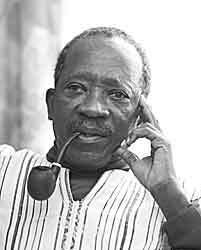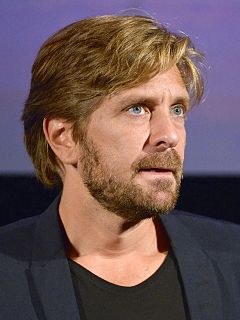A Quote by Ousmane Sembene
I think cinema is needed throughout Africa, because we are lagging behind in the knowledge of our own history. I think we need to create a culture that is our own. I think that images are very fascinating and very important to that end. But right now, cinema is only in the hands of film-makers because most of our leaders are afraid of cinema.
Related Quotes
I want studios to be financing director-driven, auteurist cinema, as they did in the '70s. I think it's starting to happen now. Plus, because of how our world has changed politically, I think audiences are demanding more realism. We need to have more stuff in our culture about what is really going on right now.
The structure of my novels has nothing to do with the narrative mode of cinema. My novels would be very difficult to film without ruining them completely. I think this is the area where writers need to place ourselves: from a position of absolute modernity and contemporaneity, creating a culture of objects which cinema cannot.
I think what I loved in cinema - and what I mean by cinema is not just films, but proper, classical cinema - are the extraordinary moments that can occur on screen. At the same time, I do feel that cinema and theater feed each other. I feel like you can do close-up on stage and you can do something very bold and highly characterized - and, dare I say, theatrical - on camera. I think the cameras and the viewpoints shift depending on the intensity and integrity of your intention and focus on that.
I don't like that we repeat a certain expression over and over again because I think it narrows the way that we look on the world. I also think that there is a certain responsibility if you work with moving images because it's so strong in creating behaviour; it's so strong in creating the way that we look on the world, so for me it's very important that I create images that I have an experience of or is something that I think exists in the world and not just in cinema.
More than my other films, Uncle Boonmee is very much about cinema, that's also why it's personal. If you care to look, each reel of the film has a different style - acting style, lighting style, or cinematic references - but most of them reflect movies. I think that when you make a film about recollection and death, you have to consider that cinema is also dying - at least this kind of old cinema that nobody makes anymore.
I first came to cinema as a passionate filmgoer, when I was a child. Then, when I was a very young man, I became a film critic precisely because of my knowledge of cinema. I did better than others because of this. Then I moved on to screenwriting. I wrote a film with Sergio Leone, 'Once Upon a Time in the West.' And then I moved to directing.
I hate political films that have one particular message that they're trying to convey. I think propaganda is very dangerous, and it's very easy for anything to slip into it. I also think that propaganda is something that defies the identity of cinema. I hate propaganda in cinema, even if it was promoting the political stance that I myself am allied with. I always say that the responsibility of a film is first and foremost: To be a film. It's not a manifesto, it's not an op-ed.





































